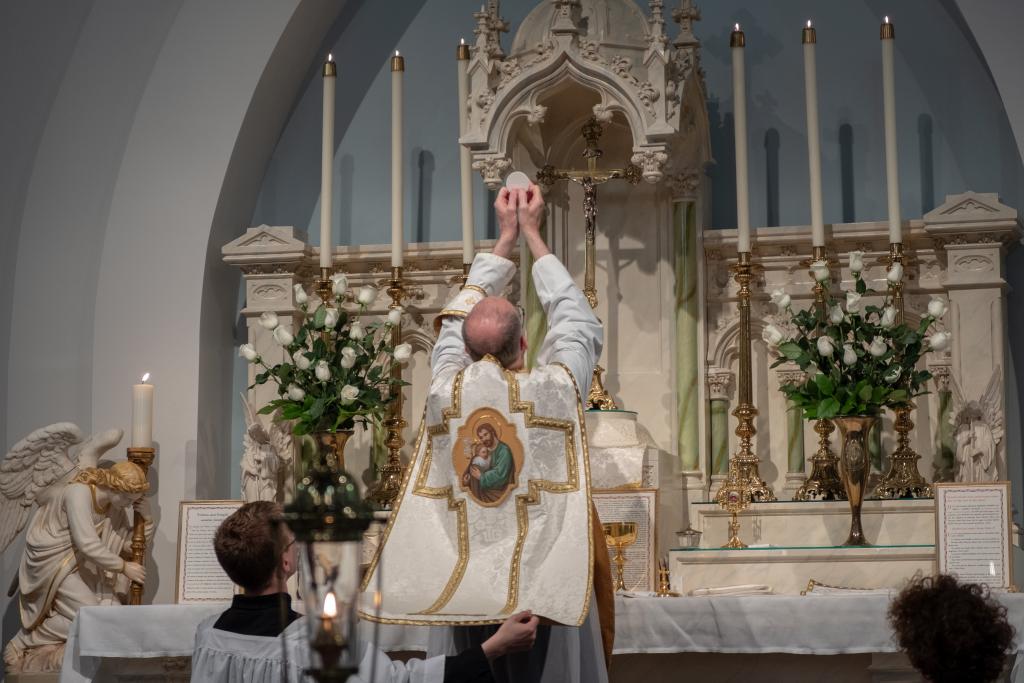
I am a Christian who questions everything. Every day, in every moment, I turn my faith over in my mind, wrestling with myself. Am I delusional? Am I speaking to myself when I speak to God? Does it matter? So when I received a request to participate in Patheos’ site wide campaign to fast for relief from COVID-19, I was instantly skeptical. What value could fasting have in a time like this?
I also instantly signed on, as is my standard strategy for examining my faith. In my experience, it is precisely the areas against which my mind initially rebels that prove the most fruitful to my faith. God does not attempt to reason with me; he only loves me.
Resistance to Fasting
As Catholics, Good Friday is always a day of fasting and repentance. We fast to repent from our sins and remind ourselves of our human frailty. But, even as a I write this, another siren sounds outside my window and I realize I am surrounded by human frailty. Are we really asked to believe that prayer and repentance can put an end to a viral pandemic?
I want to say yes, and certainly there are Christians with a more robust faith than mine who will say so. But my doubting mind is drawn to content on this very site bemoaning the futility of religion in light of tragedy and holding the pandemic up as evidence of – at best – an absent and uncaring God. How are we as Christians to respond to such arguments? What use is a fast in times like this?
Human Knowledge is Limited
Fundamentally, the only difference between me, a devout Christian, and an atheist is that I am unconvinced by the supremacy of the human mind. Worship of reason is it’s own logical fallacy, because it takes itself as its own premise. (Logic works because logic says so.) Conversely, relationship with God is experiential, transformational, and surpasses logic. Human beings have been compelled to worship since the beginning of time, because it’s wired within us to do so. We were created for worship. Fasting as a spiritual practice reminds us of our human limitations by temporarily putting them at the forefront of our experience.
We want to believe that science and progress will fix every aspect of human suffering. Indeed, they have resolved, and will continue to resolve, a great many things. But here we are in the age of technology and we are still fighting the most ancient of enemies – the virus – with many of the same methods we used in the Middle Ages. Stay inside, friends.
Lest I be misunderstood, this is in no way meant to be a dismissal of science. We have made and will continue to make important advances to improve and lengthen human life. Listen to our scientists and trust their suggestions and forecasts. I believe firmly that they will beat this pandemic. But science will never overcome death, because death is the fate of all human beings. Only God can overcome death.
Strength is Comfort with Weakness
Those who have fasted know that it is not easy. Even the relatively mild Catholic fast leaves one feeling weak, tired, and hungry. At a certain point, about midway through the day, I usually consider giving up. After all, what concrete value does not eating have? What good is all this suffering?
What good is all this suffering? There it is, the universal puzzle of faith. And in it, also we find the answer. Because it is in that moment of weakness that I turn to God. I realize that I can’t make it through without Him. But with His strength, I certainly can. And then, incredibly, it becomes easier. I turn the corner and make it through the rest of the day, fully reliant on God.
While physical hunger is a powerful way to refocus my mind on God, being hungry doesn’t make me any more reliant than I always was. I always need God’s strength to get through. But with God at the helm, the problem of suffering seems very small. When viewed through the eyes of eternity, all suffering is small. Even death is a momentary inconvenience.
Prayer Works
The reality is, as difficult as it is to accept, prayer works. Even when our prayers aren’t answered in the exact way we would like, God maintains control of the universe. Jesus Himself taught us how to pray when things seem most futile:
“My Father, if it is possible, let this cup pass from me; yet, not as I will, but as you will.”
The Father did not take the cup from the Son, but He did raise the Son from the dead and crown Him with unending glory. So Christ’s prayer worked. As we carry this incomprehensible truth in our hearts, let us throw ourselves at the feet of the Lord with prayer and fasting and ask God for our deepest desires: an end to this global pandemic, protection for patients and caregivers, for economic stability, and a return to our treasured normalcy. When we look back on these days from the viewpoint of eternity, we will see that God has answered our prayers beyond our wildest imaginations.
A Note on Who Should Fast
As we embark on the most sacred days of the Christian year, I want to offer a brief reminder on who should fast and how. The Catholic fast is quite mild. It consists of one regular meal and two small meals, which together do not equal a full meal. The idea is to feel hunger consistently throughout the day, not to starve and endanger oneself. If you have any complicating medical conditions, including a history of eating disorders, you are asked not to fast from food. If you wish, you can choose something else to fast from. God loves you.
Have a blessed Good Friday.
Click here to learn more about the Patheos Fast and Pray for Relief initiative.












